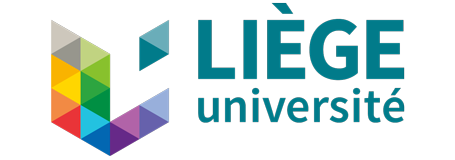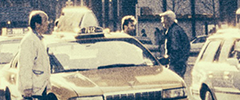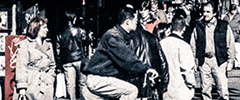Date: 21st, September, 2015 Place: History Museum of Barcelona (MUHBA). Plaça del Rei, s/n, Barcelona, Catalonia, Spain. Time: from 9:30 to 18:00 Academic Coordinators: Marco Martiniello (CEDEM, Liège), Wiebke Sievers (ISR, Vienna), Ricard Zapata-Barrero (GRITIM-UPF, Barcelona) Technical Coordination: Siresa López, GRITIM-UPF researcher, Universitat Pompeu Fabra
Seminar Framework One major problem faced by immigrants and their descendants when entering the arts in their host countries has been the marginalisation of their artistic works. This problem did not start with migration. It can be traced back to the unequal structures governing global artistic fields since the 19th century at the latest. Even today, it is much easier for North-Western artists to gain international recognition than for other artists who have to move to one of the Western artistic metropolises, such as New York, Paris or Amsterdam, in order to attract wider interest in their works. When migrants moved to the Western world in greater numbers, these unequal structures were perpetuated within the Western centres. Artists have protested against these exclusionary structures and campaigned for recognition of their works on a par with Western works ever since, with one of the first protests being the négritude movement in 1930s Paris. European states, such as Sweden and the Netherlands, took up these claims as early as the 1970s and 80s. However, the policies they introduced at the time to support migrant art and culture tended to push artists into ethnic niches, thus perpetuating the unequal structures mentioned above. Only since the late 1990s there has been a change in cultural policies towards the inclusion of migrants into the artistic mainstream. However, some major cultural institutions initiated more inclusionary programmes even before state and city governments changed their policies. This new trend towards the inclusion of migrants in the cultural and artistic mainstream will be central to our work programme. We seek paper proposals that intend to analyse this change from several perspectives: Mobilisation of migrants for inclusion Initiatives of cultural institutions to stimulate inclusion and Municipal, regional and state policies facilitating inclusion We are particularly interested in how far such inclusionary programmes change the understanding of art and culture in the respective context. Contributions to our work could focus on one particular context or one particular artistic field and analyse the changes from all three perspectives described above. However, we are also interested in contributions taking up one particular initiative and analysing it in more detail
Applications: Proposals should be sent to *protected email* and *protected email*, specifying “GRITIM-UPF/IMISCOE SEMINAR 2015” as a subject. Deadline: 22nd, June, 2015. Submissions will be discussed and selected by coordinators during the 12th IMISCOE Annual Conference (Geneva, June 25-27, 2015). Reply will be delivered in not more than one week after the deadline. Proposals should be in English and should include: Short CV (max. 200 words) Institution and area of research Title (max. 10 words) Abstract (max. 450 words)












